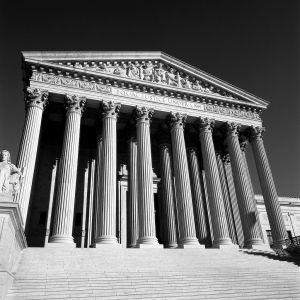Politics:
Seeking Public Power
and Control
for Private Gain
Politics is a process by which groups of people make decisions. The term is generally applied to behavior within civil governments, but politics has been observed in all human group interactions, including corporate, academic, and religious institutions. It consists of "social relations involving authority or power" and refers to the regulation of a political unit, and to the methods and tactics used to formulate and apply policy.
Definition extracted Aug. 29, 2009 from Wikipedia, the free online encyclopedia
Politics: the art or science concerned with winning and holding control over a government. The total complex of relations between people living in society; relations or conduct in a particular area of experience especially as seen or dealt with from a political point of view. Competition between competing interest groups or individuals for power and leadership.
Definition extracted Aug. 29, 2009 from Merriam-Webster Online Dictionary
Corporate, Academic and Religious Politics
Business mandates, school policies and church by-laws are written to establish direction, effectiveness, unity in standard operating procedures and protection against liabilities for the institutions; they set the goals, assign authority, and establish controls. These policies are normally and strategically written expressly to benefit the institutions and their board members.
However, the politics of a group is more than written policies. Itís the unwritten rules that can be most significant. Learning how things are done within these environments is discovered through observation and sometimes through the warnings of others who have already become familiar with the survival tactics within their culture. Knowing who is in control of final decisions, how they think, what their expectations are can help. But staying true to yourself should be a priority, whether you decide to play the political game or not, especially since there is no surefire way to determine oneís probability of success even if he/she follows what is considered proper protocol.
There is a thin line between authority and abuse of power because the head officials, usually Boards of Directors of the various establishments, can take a stance of having the final say without giving due process to anyone directly affected. When the line is crossed, conflict arises and legality of decisions are questioned, informally and formally, if necessary. Ironically, the very policies that are meant to protect these institutions can be the tool by which they are convicted.
Governmental Politics
When we watch politicians campaigning and winning at the expense of their opponentís personal and professional demise, it would appear that "survival of the fittest" is definitely in play. Once an official begins his/her duties, the struggle becomes even more intense in that it becomes necessary to prove to all the voters that they can produce the many changes promised during the campaign. And we know that they all make many elegant promises.
Doesnít it seem odd that none of the victors seem to have considered the fact that they would not be the only person making the decisions once elected? Getting everyone to agree on any one issue is always a tremendous goal, especially when the group is functionally divided into bipartisan sub-groups and then those sub-groups have conflicts within their own affiliations.
Resolving local, state, national and international conflicts is complicated and calls for fair play, tremendous amounts of research, superb analytical skills, and dedication to the mission. Being in such a powerful position of authority can create egotistical attitudes that sometimes override good judgment. For many, itís all about "Iím in charge and you will cater to my wishes," while others will sincerely attempt to gain respect and advisement of their colleagues.
But to get the cooperation of the group, one must provide opportunity to hear all aspects and points of view regarding the issues as observed by all members participating in the decision making. No one person has the answer to every problem in the world. Even the group may not have the best answer to the problems they must make decisions on. Just because a person is elected to a position does not mean he/she is best qualified.
Consider the source Ö voters are comprised of the uneducated as well as educated, unknowledgeable as well as knowledgeable, unwise as well as wise, uncaring and caring, along with dishonest and honest individuals who choose their leaders based on personal preferences. Sort of like playing the lottery Ö donít really know if the number (person) selected is the one that will yield highest returns on their invested finances, time, effort and vote.
Media is very influential in the voting process, swaying public opinion by presenting facts and sometimes, unfortunately, including unproven accusations. After all, thatís how TV, newspapers, magazines and the like gain popularity ratings and stay in business. Society, in general, has a fascination with gossip, which sells even quicker than hotcakes. So, anyone who is selected may or may not turn out to be a great match for the particular spot they inherited.
If the officialís objectives are in sync with his/her position, those directly affected will breathe a sigh of relief feeling that just decisions will be made that will help improve the quality of life for many in need. However, if merely gaining money, power and fame was the main objective of an elected politician, many citizens will suffer the consequences of that personal mission, and the resulting sting could be equated to that of a bee.
Click Economics Forum to view other articles on this topic
Click Bronzed Connections to view other forum topics
















